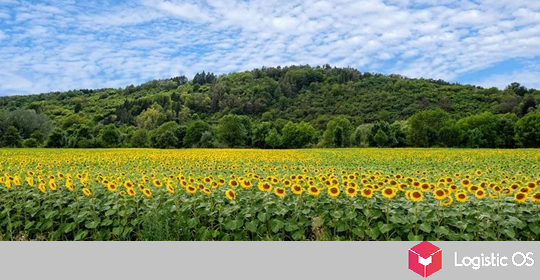May frosts could significantly affect the harvest of wheat and other crops in Russia; in the South, losses could reach 15%.
The May frosts this year were so severe that they could have caused the loss of up to 15% of the wheat harvest in the southern regions of the country.
For example, the Sovecon think tank lowered its forecast for wheat production in the South by 5.9 million, bringing it to 32.6 million tons at the moment.
In general, we can expect that the country’s harvest will fall by 7.3 million tons and amount to about 75.7 million tons.
This year’s frosts were not only severe, but also large-scale in area; they covered as many as 23 regions, and crop destruction can be expected in all of them.
As noted by the Ministry of Agriculture, up to 820 thousand hectares could have been lost, which is about 1% of the country’s total sown area. The department called on farmers to begin reseeding as soon as possible in all areas where it is necessary.
According to calculations by the same Sovecon, the total losses of farmers from frosts and other unfavorable weather conditions this year could be very significant and exceed 45 billion rubles.
Which regions suffered the most?
The greatest crop losses can be achieved in the Rostov and Volgograd regions, where an emergency situation was even introduced due to the May frosts.
Presumably, on the Don, frosts could lead to the death of crops on an area of 140 thousand hectares, despite the fact that a total of 4.9 million hectares were sown.
In the Krasnodar region the situation is strikingly different. According to the local Ministry of Agriculture, there are no damaged crops in the region at all, so no reseeding is required.
“At the beginning of May, a cold snap was recorded in the Krasnodar Territory, but the cold did not last long; there was no snow on our fields.
Therefore, low temperatures did not affect future harvests. As of today, our sunflowers and beets have already sprouted — at the 3-4 leaf stage, and corn — 5-6 leaves.
The cultures are doing great. Ragged seedlings appeared in the soybean fields, but we attribute this not to the cold, but to a lack of moisture,” noted Dmitry Dubovikov, director of Rassvet JSC.
In the Rostov region, about 1 million hectares of crops were insured, and now the owners are counting heavily on insurance payments to reduce their losses.
“The insurance rules approved by the National Union of Insurers establish that in the event of a natural emergency, insurance payments are made to insured farmers,” assured the Minister of Agriculture of the Rostov Region, Konstantin Rachalovsky.

